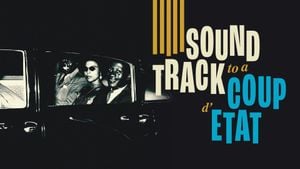The highly anticipated 2025 Academy Award nominations have finally been unveiled, marking one of the most competitive years yet. After delayed announcements due to wildfires in Los Angeles, the film industry celebrated before the Oscars' biggest night with revelations of outstanding cinematic talent.
Leading the nominations is Netflix’s Spanish-language musical Emilia Pérez, which has made history with 13 nominations—the highest ever for any foreign-language film, surpassing the previous record set by Crouching Tiger, Hidden Dragon and Roma. Actress Karla Sofía Gascón has also made waves by becoming the first openly trans woman to receive a nomination for Best Actress, underscoring the cultural significance of this year's selections.
Trailing closely behind are two films, The Brutalist and the Broadway adaptation Wicked, which both received 10 nominations. This year’s nominations not only spotlight outstanding performances but also initiate discussions around snubs and surprises, confirming whether certain films and actors were dismissed or unexpectedly recognized.
One notable surprise is Jamie Lee Curtis's absence from the Best Supporting Actress category. Her performance as the Vegas waitress in Gia Coppola's The Last Showgirl had many industry insiders believing she would secure another nomination, especially following her BAFTA and SAG nods. Also overlooked was fellow nominee Margaret Qualley, even after her Golden Globe nomination for The Substance. Now, Isabella Rossellini remains the only nepo baby left standing for her work on Conclave, competing against Zoe Saldaña, who won the Golden Globe for her role in Emilia Pérez.
While Dune: Part 2 slithered its way candidly to the Best Picture nominations amid technical acknowledgement, critics noted its earlier release date may have contributed to its lukewarm showing this awards season. The Brutalist, which tells the compelling story of Hungarian-Jewish architect struggles post-World War Two, has also shown well with multiple nominations, including Best Picture and Best Director.
Among unexpected snubs, Trent Reznor and Atticus Ross’s score for the film Challengers has received no recognition whatsoever, even after they triumphed at the Golden Globes. This absence has incited strong criticism, especially when contrasted against the music of Emilia Pérez, which featured stilted dialogue paired with the score.
On the other hand, The Substance, directed by Coralie Fargeat, has thrived with its nominations, making notable strides within the horror genre. Fargeat’s work has broken glass ceilings often imposed on female directors, earning her recognition within both the Best Director and Best Original Screenplay categories.
Regarding the animated feature category, it was presumed Moana 2 stood to break through, rooted deep within its billion-dollar box office success. Nevertheless, Memoir of a Snail, the claymation film directed by Adam Elliot, has emerged victorious, securing its place among the five nominees—a rare achievement for Australian animation.
The Best Picture nominations, including films like Anora, I’m Still Here, and the provocative Nickel Boys, align with this year’s trend of deeply political storytelling, cementing the Academy's shift toward themes reflecting contemporary issues such as race, privilege, and power structures. Films like Wicked and Dune: Part 2 challenge societal norms, drawing attention to inequality and deception within leadership and governance.
Cynthia Erivo’s nomination for Best Actress adds another layer of intrigue to this year’s Oscars. With her performance anchoring Wicked, she has another chance to gain the elusive O of EGOT fame, previously nominated for Harriet.
Among the highest-profile snubs are Nicole Kidman for Babygirl and Angelina Jolie for Maria, both failing to secure places within leading actress nominations. Similarly, acclaimed director Jon M. Chu was overlooked for his contributions to Wicked, another surprising omission considering its widespread acclaim.
The Oscar nominations serve as both celebration and critique, as industry watchers note the blend of commercial successes and political narratives. Historical representations through films like The Seed of the Sacred Fig and honors for actors like Aunjanue Ellis-Taylor, whose riveting performance roots the conversation deep within systemic racism, highlight the Academy's focus on social justice themes and diversity.
With nominations spanning genres and thought-provoking subjects, this Oscars promises not only to celebrate artistic achievement but also serve as the backdrop for conversations centering around equity and representation within the industry. This year’s nominees call for consideration of not just who will take home the statues, but also the impact of their stories and performances.
With the ceremony looming just over the horizon, all eyes will be on the Oscars and the conversations surrounding this eclectic mix of nominations, ensuring this year’s event could see significant political undertones interwoven within acceptance speeches and the awards showcased.



